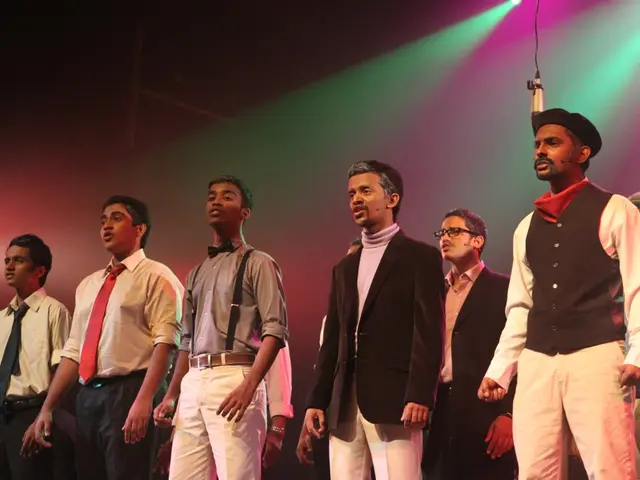Elections in Georgia alleged to be marked by a prevailing atmosphere of coercion, according to international overseers
Georgia's parliamentary elections held on October 26 have sparked international concern, with allegations surrounding electoral irregularities and a politically charged environment undermining the democratic process.
The incumbent Georgian Dream party reportedly garnered 54% of the vote, while opposition parties argue that they were unfairly underrepresented. The opposition's refusal to accept the outcome is based on various assessments, exit polls, and observer reports that indicate better performance than indicated by the official tally.
International election observers stopped short of calling the elections stolen, but they substantiated claims of a climate of pressure on voters during and leading up to the elections. Concerns were expressed about the uneven playing field, which undermines trust in the election outcome.
A report from the International Society for Fair Elections and Democracy warned of a high risk of electoral irregularities in some rural regions, including Kvemo Kartli, where there were documented instances of vote rigging and voter intimidation. Reports of violations poured in on election day, including a video circulating on social media that showed a man stuffing ballots in a box in Kvemo Kartli, and an opposition-aligned election observer being beaten at a polling station in the same municipality.
The Georgian Young Lawyers Association counted around 300 irregularities by the end of voting, while the "My Vote" election monitoring coalition declared that "serious and substantial violations" had taken place. These incidents contributed to a climate of pressure and intimidation, with the presence of ruling party cameras at polling stations and people outside polling stations tracking and potentially controlling voters.
The international monitoring mission's findings further muddied the political landscape, where both the ruling Georgian Dream party and the collective opposition are claiming a right to form the next government. If the current results hold, Georgian Dream would be deprived of sufficient representation in parliament to amend the constitution on their own.
In response to electoral violations, the head of the OSCE Office for Democratic Institutions and Human Rights election observation mission stated after the press conference that issues were spread fairly evenly across the country. However, the opposition rejected the official results as illegitimate, sparking protests and calls for new elections under international supervision.
The opposition's rejection of the official results, the subsequent protests, and the government's harsh handling of these protests have drawn condemnation from European leaders and international rights groups, who cite democratic backsliding and violations of civil liberties. Opposition leaders and activists have faced arrests, and parliamentary investigative commissions have sought to prosecute opposition figures for their resistance to the election outcome.
In summary, the October 26 parliamentary elections in Georgia have been met with significant international concern over electoral irregularities, voter pressure, and an oppressive post-election environment. While definitive proof of large-scale rigging remains contested, there is a need for careful, independent verification and respect for democratic norms amid ongoing political tensions.
- The Georgian parliamentary elections on October 26 have been labeled as 'general-news' due to the international concern over allegations of electoral irregularities and voter pressure.
- The opposition parties, citing various assessments and observer reports, claim that they were 'unfairly underrepresented' in the elections, leading to their refusal to accept the official tally.
- Election observers have documented instances of 'voter intimidation' and 'vote rigging' in certain rural regions, such as Kvemo Kartli, adding to concerns about the 'uneven playing field' in the elections.
- The subsequent rejection of the official results by the opposition and the ensuing protests have led to accusations of 'democratic backsliding' and 'violations of civil liberties' from European leaders and international rights groups, with opposition leaders and activists facing arrests and investigations.








